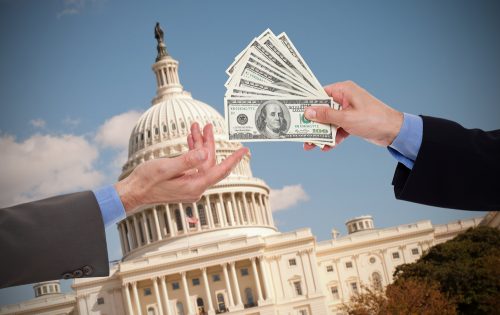With a contentious debate in Congress regarding the reconciliation bill and its passage, it would seem that the bill and its contents (pulled straight from President Biden’s Build Back Better Agenda) are controversial among the American people as well.
Instead, polls have demonstrated that the vast majority of voters support the bill and its provisions. The only group that consistently opposes the bill and actively works towards its failure is a tiny minority of the populace – the ultra-wealthy and corporate interests.
Despite their small number, this group has a disproportionate say in what gets done in Congress. Thanks to their influence, there are too many members of Congress on both sides who are willing to put their donors above their constituents. That has to change. We must demand that our lawmakers represent their constituents, not their donors, by enacting a full reconciliation bill that focuses on the incredibly popular policies of the Biden agenda, especially taxing the rich to fund the investments our country and its people need.
This week we’ll look at how this overwhelmingly popular legislation is being chipped away by those who claim to represent Americans.
Unpopulism by David Leonhardt and Ian Prasad Philbrick
Time and time again the public has made it clear that they support the vast majority of the provisions outlined in Biden’s Build Back Better plan to raise taxes on the ultra-wealthy and corporations. Why is it then that moderate Democrats want to remove the provisions that a bi-partisan majority of Americans want the most? You start by following the money. Campaign donations and highly organized lobbyists are funded by the same people who benefit the most from our current tax code. These rich people are fighting tooth and nail to avoid paying their taxes, and corporate Democrats are more than happy to work alongside them and collect their checks.
$3.5 Trillion for the Build Back Better Agenda Is Much, Much Less Money Than You Think by Jon Schwarz
While some voters (and Congresspeople) are balking at the price tag on the reconciliation package, the large number gives a misguided idea of how much money is being spent over time. A trillion is a near-incomprehensible number, so it’s understandable that it comes off scary at face value. But, when you realize that this money will be allocated and spent over the next 10 years, and that it would only make up 1.2% of our country’s GDP, it puts that number into perspective. Corporate interests, conservative Democrats, and the lobbyists that represent rich people are misrepresenting the true costs of this bill in order to get their way.
To Build Back Better, Tax Families Like Ours by Liesel Pritzker Simmons and Ian Simmons
In this op-ed, Liesel Pritzker Simmons and her husband Ian (a member of the Patriotic Millionaires) talk about how unfair it is that income is taxed at a much higher rate for those who work for a living when compared to wealthy people who make their income off investments. As it stands, the burden of taxation is placed unduly on the shoulders of the middle and lower classes who cannot afford it, while the wealthy get away paying pennies.
More Than Half of America’s 100 Richest People Exploit Special Trusts to Avoid Estate Taxes by Jeff Ernsthausen, James Bandler, Justin Elliott, andPatricia Callahan
In the rare circumstances when our current tax code levies any meaningful kind of tax on the wealthy, the rich can still use all their resources to get around paying what they owe. One particularly egregious loophole explained in this piece is the use of trusts to pass along billions of dollars of wealth between generations. This systematic abuse is enabled by everyone in Congress who has voted against taking measures to unrig our economy and fix the tax code. We need the budget reconciliation deal so we can finally close some of the most egregious tax loopholes that the rich abuse to get out of their responsibility to society.
